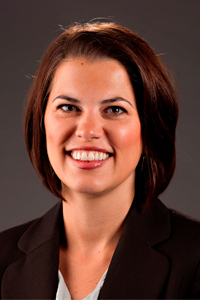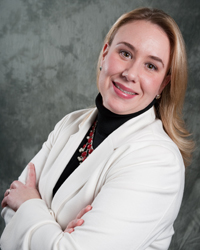 Does your undergraduate major matter when you’re applying to MBA programs? Of course it does, but maybe not in the way you might think. Traditional thinking may suggest that an undergraduate degree in economics or other business-based focus might give you an edge in admissions – as this kind of degree might better prepare students for business school – but this might not actually be the case. Continue reading
Does your undergraduate major matter when you’re applying to MBA programs? Of course it does, but maybe not in the way you might think. Traditional thinking may suggest that an undergraduate degree in economics or other business-based focus might give you an edge in admissions – as this kind of degree might better prepare students for business school – but this might not actually be the case. Continue reading
Tag Archives: Applications
What’s Really Behind the Recent Decrease in MBA Applications?
 It’s official: there are fewer people applying for MBAs now then there were last year. A recent Bloomberg Businessweek study’s finding mirrors those of an earlier study by GMAC: MBA applications were down at most schools this year, after several years of big increases.
It’s official: there are fewer people applying for MBAs now then there were last year. A recent Bloomberg Businessweek study’s finding mirrors those of an earlier study by GMAC: MBA applications were down at most schools this year, after several years of big increases.
Businessweek, after getting data back from the schools on their top 30 MBA programs list (which includes Chicago Booth, the University of Michigan, and Southern Methodist University/Cox, among other schools) confirmed that GMAC was correct in their conclusions that:
A skittish economy, coupled with candidates unwilling to leave their jobs, may be causing some to hold off applying to business school, GMAC noted in its latest survey of application trends. “The impact of economic uncertainty on admissions trends for full-time MBA programs may still be underway,” GMAC said in the report.
Indeed, this seems obvious: that uncertain trends in the larger economy are causing hesitation in many would-be MBA applicants, especially those who are currently employed. However, this does not explain how between 2008 and 2010, at the height of a global financial crisis, the volume of applications for MBA programs were larger than ever, and even increased during this period of radical uncertainty.
Perhaps a couple of other factors have influenced this trend. For one, the previous few years have seen absolutely explosive increases in MBA applications, across the board. According to GMAC, 80% of surveyed two-year MBA programs saw increases in 2008, and 70% of one-year programs saw increases in 2009. These phenomenal increases significantly widened the application pool for MBA programs, effectively making them more competitive. And this increased competition is quantifiable: for example, as applications increased between 2005 and 2010, the average GMAT score for admitted students at NYU Stern School of Business increased 25 points, from 694 to 719. It can be argued that larger application pools have caused schools to become more selective, and this is beginning to drive a reverse effect in that many less-qualified applicants are starting not to apply.
Or, the less-qualified candidates may just be looking for career growth elsewhere. In fact, GMAC reports that as applications for MBA programs are decreasing, they’re actually increasing for other types of programs. A strong majority of surveyed Master in Management programs (69%) have received more applications this year than last; as did 83% of Master in Finance programs.
A potential upside of the decrease in MBA applications is that the high-selectivity trend will reverse. The fewer candidates a school receives, the bigger percentage they will admit to fill the class.
Apples to Oranges? Comparing Master in Management Degrees with MBAs
 Last year, the Find MBA Blog interviewed Thomas Graf, the director of the website Master in Management Compass, about the differences between Master in Management (MiM) programs and traditional MBAs.
Last year, the Find MBA Blog interviewed Thomas Graf, the director of the website Master in Management Compass, about the differences between Master in Management (MiM) programs and traditional MBAs.
Graf noted that MiM programs tend to draw younger candidates with less work experience. They’re also generally cheaper, and carry less reputation than their better known MBA counterparts. Interestingly, Graf noted that there is not much difference in the range of their respective curriculums:
Some students I talk to think there are no differences at all. I think this is probably too strong to say, but overall the differences in terms of content are not that big. Both offer general management courses, integrated team work, case studies, and a practical-oriented approach.
So, if the curriculum is about the same – how do the differences play out in the real, post-graduation world?
Interview: Jodi Schafer of the Tippie MBA
Asking yourself questions like “Where do I want to be?” might seem trite, but it’s an essential step to picking the right b-school and getting in, says Jodi Schafer, director of MBA admissions at the University of Iowa’s Tippie School of Management.
How clear do you think MBA applicants should be about their career direction?
We like to see that candidates have some idea of the different opportunities in business so that once they get here, they’re able to quickly identify with a specific career path. That’s important because we only have two years. A big part of our program is career preparation, and if the student hasn’t identified with a functional area by the second semester it makes it difficult to prepare them for their post-MBA career. The goal is to help them obtain the type of position that they want. That requires focus from the student and the program.
That being said, we realize that candidates a lot of times don’t know exactly what they want to do, and we wouldn’t expect them to. But we would want them to say, “Oh, I would appreciate a career in strategy, and here are the reasons why.” Now the assumptions of what that position would be may be wrong, and they might figure that out during – in our case – the first semester of the program. That’s really the time when they are exposed to alums and current students who talk about their experiences in internships and full-time positions. You kind of go through a day in the life of different careers, so that they can tell the students what to expect, and dispel some of the myths associated with MBA positions.
Interview: Erin Nickelsburg of the Wisconsin School of Business
In the first in our series of interviews with MBA admissions directors, we spoke with Erin Nickelsburg of the University of Wisconsin – Madison’s School of Business about how to approach applications if you’re a seeking a specialization, are a career changer, or don’t come from a traditional MBA background.
Wisconsin offers several MBA specializations. Are there any differences in terms of how applicants apply to a specialized versus general program?
The way our program runs is different than most MBA programs. Students apply directly to the specialization they are interested in and there is a set number of students we accept into those specializations each year.
What we’re really looking for – the key to all of this for our applicants – is passion. We want to see the passion the applicant has for their area of specialization. We also want to see that an applicant’s career goals are in line with their area of specialization. If you’re going back to get your MBA, there’s an expectation that you’re going to get a job when your done, and it better be a good one.
So, you’re looking for someone who knows where an MBA fits into their career path; not so much a career changer?
We have plenty of people that use our career specializations to launch a complete career shift. We have people who go from finance to brand management; from marketing to finance; or from consulting to operations. The Wisconsin specialization model is an excellent platform to do that, because the depth of study that you get will make up for your lack of experience in that area. The employers that hire Wisconsin’s MBAs know that. They know, for example, that while you have no direct background in supply chain management, the two years you studied supply chain here at Wisconsin has more than prepared you for what you want to do.
FIND MBA Goes Social!
 We don’t often post stuff about ourselves, but we have a few exciting things to announce:
We don’t often post stuff about ourselves, but we have a few exciting things to announce:
First of all, the official FIND MBA Twitter channel is up and running! So now you can be the first to know about our MBA news updates and commentary. Follow us here.
Secondly, the FIND MBA Facebook page is also online. We’re just getting this started, but you can connect with us and other prospective MBA students there. We will be adding new, unique content here soon, so stay tuned.
Finally, we’ve upgraded the community tools on FIND MBA. We built the MBA AppTracker so that registered users can share their application status for the MBA programs they are applying to. It also lets you see how other users are doing in the application process: Who else is interested in the same program? Who else has applied? Who has received an admissions decision already?
Check it out. AppTracker is a tab in every users’ account (“My Account“).
Original penguin photo: Stan Shebs / Creative Commons

